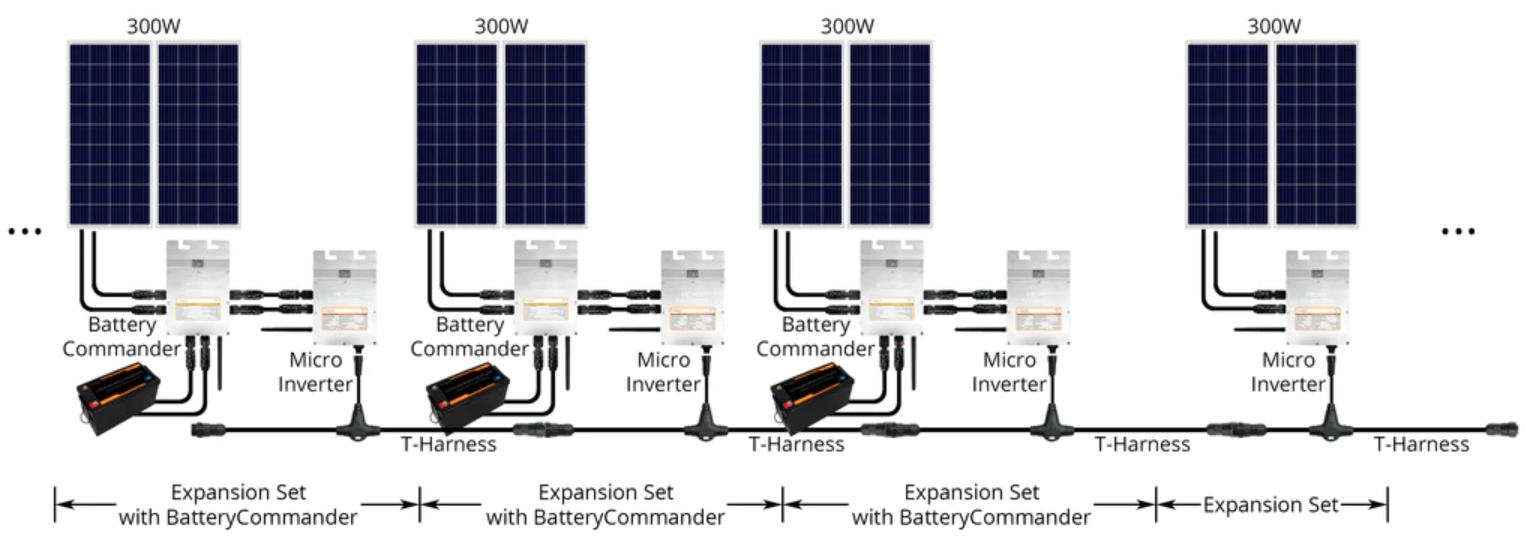
The growing popularity of micro inverter solar systems in the renewable energy sector, particularly for residential and small-scale commercial installations, is driven by their unique advantages and evolving technology. Here’s an overview of why these systems are becoming increasingly favored:
1. Increased Energy Efficiency
- Panel-Level Optimization: By maximizing the output of each individual solar panel, even in less-than-ideal conditions (like shading or different orientations), micro inverter solar enhance overall system efficiency.
- Consistent Performance: They ensure that the underperformance of one panel does not affect the output of the entire system, unlike traditional string inverter setups.
2. Enhanced Safety and Reliability
- Lower Voltage Operation: The DC to AC conversion happens right at the panel, reducing the risks associated with high-voltage DC electricity used in central inverter systems.
- Reliability: With no single point of failure, micro inverter solar systems are less likely to experience total shutdowns.
3. Flexibility and Scalability
- Adaptable Installations: Micro inverter solar is ideal for roofs with complex designs, partial shading, or orientation issues, as each panel operates independently.
- Easy Expansion: Adding more panels to an existing system is more straightforward with micro inverter solar, offering homeowners the flexibility to scale their systems based on changing energy needs or budgets.
4. Advanced Monitoring and Easier Maintenance
- Individual Panel Monitoring: Homeowners can monitor the performance of each panel, allowing for easier identification of issues and more efficient maintenance.
- Simplified Troubleshooting: Diagnosing and replacing a single faulty micro inverter solar is often easier than dealing with central inverter issues.
5. Economic Advantages
- Long-Term Cost Savings: While the initial investment is higher, the enhanced efficiency and longer lifespan can lead to significant savings over time.
- Higher ROI: The increased energy output can translate into greater savings on electricity bills, offering a better return on investment.
6. Environmental Benefits
- Maximized Renewable Energy Use: They ensure more effective use of solar energy, aligning with global efforts to reduce carbon emissions and combat climate change.
- Sustainable Energy Production: Micro inverter solar contribute to a more sustainable energy infrastructure by optimizing the use of renewable resources.
7. Market Trends and Technological Advancements
- Innovation: Continuous advancements in micro inverter solar technology are improving efficiency and reducing costs.
- Consumer Awareness: Increasing awareness about the benefits of micro inverter solar is driving demand, especially among environmentally conscious consumers.
Conclusion
The rise in popularity of micro inverter solar systems is a response to their ability to offer increased efficiency, safety, flexibility, and long-term economic benefits. As technology continues to advance and awareness grows, these systems are likely to become an even more integral part of the global shift towards renewable energy solutions.
